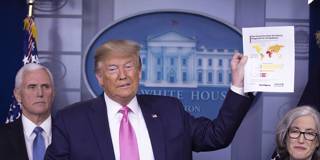
How America Can Beat COVID-19
Compared to a world war, the COVID-19 epidemic is a fairly manageable problem, provided that the US government can rise to the challenge. But without a mass mobilization to secure critical supplies and prevent a panic, the crisis could easily spin out of control.
AUSTIN – When the Japanese attacked Pearl Harbor, the United States was surprised and unprepared, but it was quickly freed of its illusions. The same does not hold true for the COVID-19 epidemic. The attack is underway and our defenses are down – but so far our illusions remain intact.